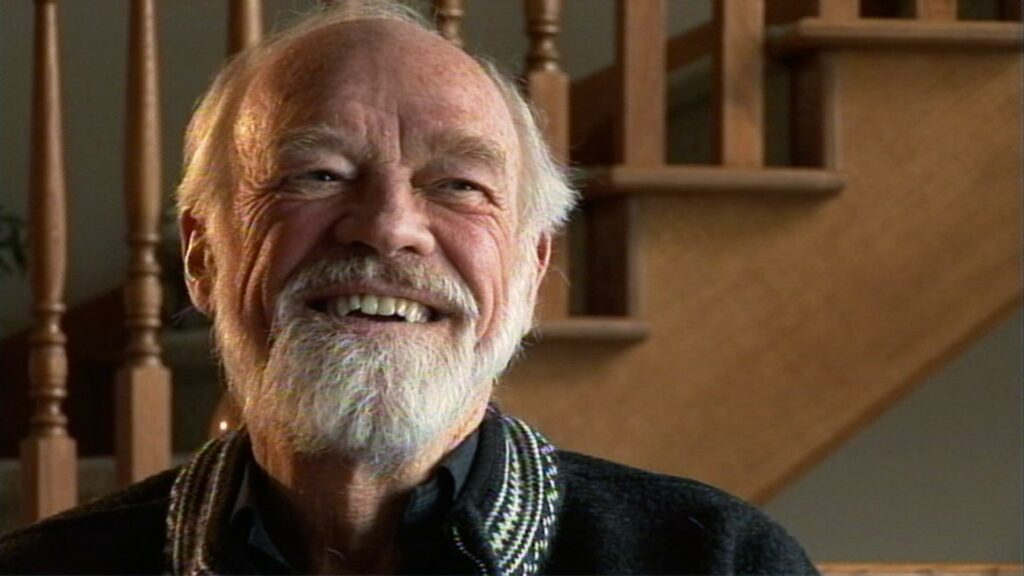You may have heard by now that Eugene Peterson, the author, and creator of the popular book, The Message, recently came out in support of homosexual marriage. In an interview with Religion News, he was asked that if he were pastoring today would he perform a same-sex wedding ceremony, he responded “yes.”
I wouldn’t have said this 20 years ago, but now I know a lot of people who are gay and lesbian and they seem to have as good a spiritual life as I do. I think that kind of debate about lesbians and gays might be over. People who disapprove of it, they’ll probably just go to another church. So we’re in a transition and I think it’s a transition for the best, for the good. I don’t think it’s something that you can parade, but it’s not a right or wrong thing as far as I’m concerned.
Today, Southern Baptist entity head, Russell Moore, of the Ethics and Religious Liberties Commission advised Christians that they should still read and learn from the now pro-gay author. Moore states in an article at The (Social) Gospel Coalition,
I probably wouldn’t now give his books to a brand-new believer, seeking to find a starting place in discipleship, for fear the new brother or sister might embrace the whole package—as some of us did with whomever it was that was influential in our early Christian lives, whether C. S. Lewis or J. I. Packer or John Stott or John Piper. That’s especially true, given our sexually confused culture where the definition of marriage is what’s used to tear away at a Christian anthropology. I wouldn’t now have him speak at my church or event—for the same reasons and for the fact I would never want to confuse anyone about the call to repentance.
This is a rather interesting assertion on Moore’s part, considering he recently invited Andy Stanley, a staunch denier of Biblical authority, to speak at the entity’s annual ERLC Conference in 2016. Stanley, during a Q&A session involving the prized evangelical game of “what if you were pope?” stated, “I would ask preachers and pastors and student pastors in their communications to get the spotlight off the Bible and back on the resurrection.” Stanley’s errors and influence are certainly as deep as Peterson’s, as he insists that the incarnation of Christ is an unimportant issue and throws all small churches under the bus when he claims that those who don’t go to a big church like his are “so stinkin’ selfish.” He also trashes expository preaching, calling it “easy,” and “cheating,” while alleging that you can still have a better life if you follow Jesus’ teachings, even if you never come to know Him as the Son of God.
But I digress. Moore continues in his piece for Peterson, stating,
But that doesn’t mean we should throw away our Peterson (or Berry) books.
Peterson is wrong about a huge issue, with massive implications for the eternal lives of people and the witness of churches. George Whitefield and Jonathan Edwards were wrong on the sin of human slavery. We never read anyone who is right on everything, except within the covers of our Bibles. Everything else we ought to read with a certain level of skepticism and discernment, including (maybe especially?) the things we write ourselves.
Yes, these men were wrong on the issue of human slavery, but two observations should be made here: 1. We’re not living in a culture that’s celebrating human slavery, therefore, this isn’t an issue that’s going to interfere with the more robust aspects of these men’s writings, and 2. Eugene Peterson, as contrasted to Whitefield and Edwards, is heterodox in his teachings. This is evidenced by his book, The Message, which attempts to pass itself off as a Bible translation, yet doesn’t even fit the description of a halfway truthful paraphrase. The Message is a blatant rewriting of the Biblical narrative that downplays human sinfulness and our separation from God on its account–a false gospel is presented in this book. This makes Peterson more than simply a true believer in error, this makes him a false teacher.
Justin Peters makes the following observation regarding Eugene Peterson’s unsurprising announcement:
Moore continues,
There is much I’ve learned from Peterson, and much I am sure I will learn in the future. But one of those things is this: if a wise man who has translated and written commentaries on the prophets, on Romans, on Revelation, can make that sort of turn, with that little revelatory authority behind him, then I could easily talk myself into some error too (1 Cor. 10:12).
Eugene Peterson is a wise, gentle Christian. He may well rethink this, and I hope he does. Christian teachers have made errors before—sometimes massive ones (think of the Simon Peter of Galatians 2). The church still stands. The Message marches on, whether The Message does or not.
Moore, once again, is propping up a false teacher. What makes Eugene Peterson any different than any other gay-affirming heretic, such as Matthew Vines? Why is this false teacher defended while other false teachers are disposed of? While it’s impossible to judge the heart of others, by his fruits it would certainly be a stretch to assume Peterson regenerate as he parades around multiple heresies and reveals himself to be sliding further into apostasy. The Holy Spirit does not lead one down a path to destruction, and while it is true that believers can and do veer off into error, Peterson’s errors, time after time, prove dangerous and false.












